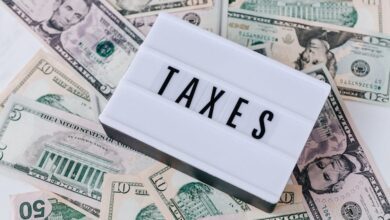Navigating Property Tax: Essential Strategies and Insights for Property Owners in Today’s Tax Landscape

Property tax stands as one of the most significant and often misunderstood forms of taxation in the United States. Unlike personal income tax, corporate tax, or sales tax, property tax is levied specifically on real estate and property ownership, making it a crucial consideration for both homeowners and investors. As local governments primarily rely on these taxes to fund essential services such as education, infrastructure, and public safety, understanding the dynamics of property tax is vital for effective tax planning. This article will explore key concepts surrounding property tax, distinguishing it from other forms of taxation like capital gains tax and inheritance tax. We will also delve into practical tax planning strategies for property owners, focusing on how to maximize tax deductions and credits. Finally, we will examine the broader impact of property tax on local economies and state tax policies, shedding light on how these taxes shape financial landscapes and influence tax reforms. Whether you are a seasoned property owner or a newcomer to real estate, understanding property tax is essential for navigating today’s complex tax environment.
- 1. Understanding Property Tax: Key Concepts and How They Differ from Other Taxes
- 2. Tax Planning Strategies for Property Owners: Maximizing Deductions and Credits
- 3. The Impact of Property Tax on Local Economies and State Tax Policies
1. Understanding Property Tax: Key Concepts and How They Differ from Other Taxes
Understanding property tax is essential for both property owners and potential buyers, as it significantly impacts overall financial planning and budgeting. Property tax is a levy imposed by local or state governments on real estate properties, calculated based on the property's assessed value. Unlike personal income tax, which is based on an individual's earnings, or corporate tax that targets company profits, property tax is directly tied to the ownership of property.
One key distinction between property tax and other types of taxes lies in its assessment. Property taxes are typically assessed annually and can vary based on local tax policies and state laws. For example, while personal income tax rates may differ from one state to another, property tax rates are often influenced by local budgets and community needs. This makes understanding local tax laws critical for effective tax planning.
Moreover, property tax is distinct from consumption taxes like sales tax and value-added tax (VAT), which are applied to purchases of goods and services. While property tax is a fixed cost associated with owning real estate, consumption taxes fluctuate based on spending behavior. Additionally, property taxes do not factor into capital gains tax, which is charged on profits made from selling an asset, nor inheritance tax, which applies to assets passed on after death.
Property owners can benefit from tax deductions and credits related to property tax, which can help mitigate the overall tax burden. For instance, certain jurisdictions offer tax credits for seniors or low-income households. Understanding these options can be an integral part of effective tax strategies for homeowners.
In the context of broader tax reform discussions, property tax remains a critical area of focus, particularly in relation to state and local taxes. As policies evolve, property owners must stay informed about potential changes that could affect their tax obligations. This knowledge is particularly relevant for small business owners who may own commercial properties and need to navigate both property taxes and other business-related taxes like payroll taxes and self-employment tax.
In summary, property tax plays a unique role in the tax landscape, differing fundamentally from personal income tax, corporate tax, and other levies. By understanding the nuances and implications of property tax, individuals can make more informed decisions regarding their real estate investments and overall tax planning.
2. Tax Planning Strategies for Property Owners: Maximizing Deductions and Credits
Tax planning is a crucial aspect for property owners looking to maximize their financial benefits and minimize liabilities. Understanding the nuances of various tax types, including property tax, personal income tax, and capital gains tax, can lead to significant savings. Here are some effective strategies property owners can implement to enhance their tax situation.
First, property owners should be diligent in tracking all expenses related to their real estate investments. This includes maintenance costs, property management fees, and any improvements made to the property. These expenses can often be deducted from taxable income, reducing the overall personal income tax liability. Additionally, if the property is rented out, owners can take advantage of tax deductions related to depreciation, which allows them to deduct a portion of the property’s value over time.
Another key strategy is to explore available tax credits. Depending on the location, property owners may qualify for local tax credits aimed at encouraging home ownership, energy-efficient upgrades, or historic preservation. By staying informed about state taxes and local taxes, owners can capitalize on these opportunities and reduce their property tax bills substantially.
For those who are self-employed or run a small business from their property, understanding payroll taxes and self-employment tax is essential. By properly classifying expenses and utilizing tax planning software, owners can ensure they are accurately reporting income and maximizing deductions related to their business activities.
Investing in tax filing software can streamline the process of preparing for tax audits and ensure all tax laws are adhered to. A well-organized approach to documenting income and expenses can protect against potential issues with tax authorities.
Additionally, property owners should consider their tax residency status. For expatriates, understanding expat taxes and international taxation is vital, especially if they own property abroad. Each country has different tax policies, and failing to comply can lead to hefty penalties.
Lastly, property owners need to stay updated on tax reforms and changes in tax policies that could affect their financial planning. This includes being aware of how capital gains tax may impact the sale of properties and any inheritance tax or estate tax implications when passing properties to heirs.
By implementing these tax strategies, property owners can ensure they are making the most of their investments and legally minimizing their tax burdens. In doing so, they can create a more sustainable financial future while navigating the complexities of the tax landscape.
3. The Impact of Property Tax on Local Economies and State Tax Policies
Property tax plays a crucial role in shaping local economies and influencing state tax policies. As a significant source of revenue for municipalities, property taxes are vital for funding essential services such as education, public safety, infrastructure, and local development projects. These taxes are typically levied based on the assessed value of real estate, which means that as property values increase, so too do the tax revenues that support local initiatives.
One of the most significant impacts of property tax is its effect on local economies. High property tax rates can deter investment in the area, pushing potential homeowners and businesses to seek more tax-friendly environments. Conversely, low property tax rates can attract new residents and businesses, enhancing local economic growth. Local governments often implement tax planning strategies, such as tax credits and deductions, to foster business development and stimulate economic activity within their jurisdictions.
State tax policies are also influenced by the revenue generated from property taxes. States that rely heavily on property tax may have lower personal income taxes or sales taxes, creating a more favorable tax environment for residents and businesses. In contrast, states that have opted for higher personal income tax rates may compensate with lower property taxes. This balance is critical in crafting effective tax policies that promote economic stability and growth.
Moreover, the relationship between property taxes and other forms of taxation, such as corporate tax, capital gains tax, and sales tax, highlights the interconnected nature of tax systems. For instance, municipalities with robust property tax bases may have more flexibility in adjusting other taxes, which can influence business decisions related to expansion or relocation. This interplay is essential for policymakers to consider during tax reform discussions, as it can significantly affect economic activity and overall state competitiveness.
In addition to influencing local economies and state tax policies, property taxes can also impact residents' financial decisions regarding tax filing software, tax audits, and overall tax strategies. Homeowners often factor in property tax obligations when engaging in estate planning, where inheritance tax and estate tax considerations come into play. Similarly, small businesses must navigate the complexities of local taxes, self-employment tax, and payroll taxes, making effective tax planning essential to their financial health.
Ultimately, the impact of property tax extends beyond mere revenue generation; it shapes the economic landscape of communities and influences broader state tax policies. As local economies evolve and adapt to changing circumstances, the need for thoughtful tax policies that consider the implications of property tax will remain a priority for governments at all levels.
In conclusion, understanding property tax is crucial for both property owners and local economies. Property taxes are distinct from other forms of taxation, such as personal income tax, corporate tax, and sales tax, yet they play a significant role in funding essential local services and infrastructure. By employing effective tax planning strategies, property owners can maximize their tax deductions and credits, ultimately enhancing their financial stability.
Moreover, the impact of property tax extends beyond individual taxpayers; it shapes local and state tax policies that influence economic growth and community development. As tax laws continue to evolve, staying informed about property tax regulations and potential reforms is essential for making sound financial decisions. Whether you are a small business owner navigating property tax implications or an individual considering the effects of property tax on your overall tax strategy, understanding the nuances of property tax will empower you to optimize your financial outcomes while contributing to the vitality of your community.
As you consider your tax planning strategies, remember that property tax is just one aspect of a broader tax landscape that includes capital gains tax, inheritance tax, and various consumption taxes. With the right knowledge and tools, such as tax filing software, you can effectively manage your tax responsibilities and prepare for potential tax audits. Embracing these insights will not only help you navigate the complexities of property ownership but also equip you to engage thoughtfully in ongoing conversations about tax policies and reform in our ever-changing economic environment.
References:
– [Insert relevant sources here in APA format]





